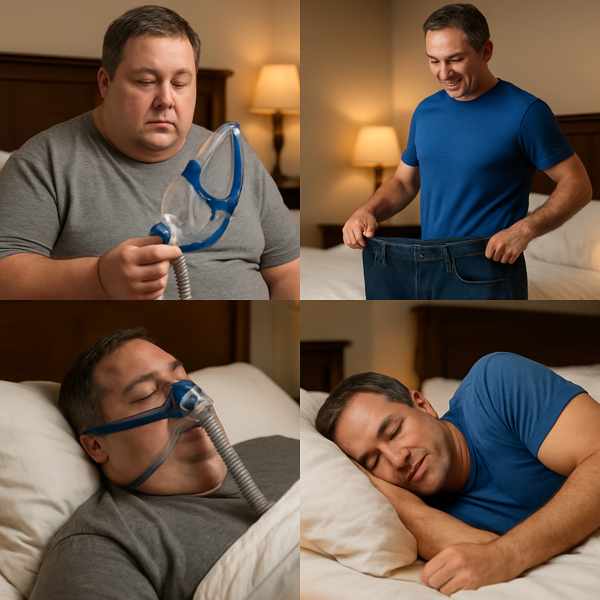How Weight Loss Affects Sleep Apnea
How Weight Loss Affects Sleep Apnea
Blog Article

Many people with sleep apnea experience difficulty sleeping, loud snoring, and interrupted breathing patterns.
While not always a complete cure, weight loss often reduces the severity of sleep apnea significantly.
What Is Sleep Apnea?
Sleep apnea occurs when breathing repeatedly stops and starts during sleep.
Common symptoms include:
- Often reported by sleep partners
- Choking or gasping during sleep
- Excessive daytime tiredness
- Signs of disrupted oxygen flow
The Link Between Weight and Sleep Apnea
Fat deposits in the throat may narrow the airway, making it more likely to collapse.
Key risk factors include:
- More weight increases OSA risk
- Fat around the neck and jawline
- Poor muscle tone in the throat
Does Losing Weight Help OSA?
Especially in individuals with mild to moderate OSA, lifestyle changes can be very effective.
Possible benefits of weight loss:
- Less airway obstruction
- Better oxygen flow
- Less need for CPAP machines or surgery
- Improved sleep quality and energy
However, weight loss may not cure sleep apnea in all cases — especially if anatomical issues or severe OSA are present.
What Results Can You Expect?
Even modest weight loss can have a big impact.
Tips:
- Start with small, achievable goals
- Combine diet and exercise
- Track your sleep changes
Lifestyle Changes That Help
Effective strategies:
- Eat a balanced, whole-food diet
- Exercise regularly (cardio + strength)
- Sleep on your side
- Avoid alcohol and sedatives
Working visit with a nutritionist or sleep specialist can provide more personalized support.
What to Do if Symptoms Persist
While weight loss is helpful, it may not fully resolve sleep apnea for everyone.
- Keeps airways open at night
- Custom-fitted mouthpieces to reposition jaw and tongue
- To remove excess tissue or reposition structures
Final Thoughts on Weight Loss and Sleep Apnea
So, can weight loss cure sleep apnea? In many cases, it can improve the condition.
Talk to your healthcare provider, make informed decisions, and take proactive steps toward better health and rest. Report this page